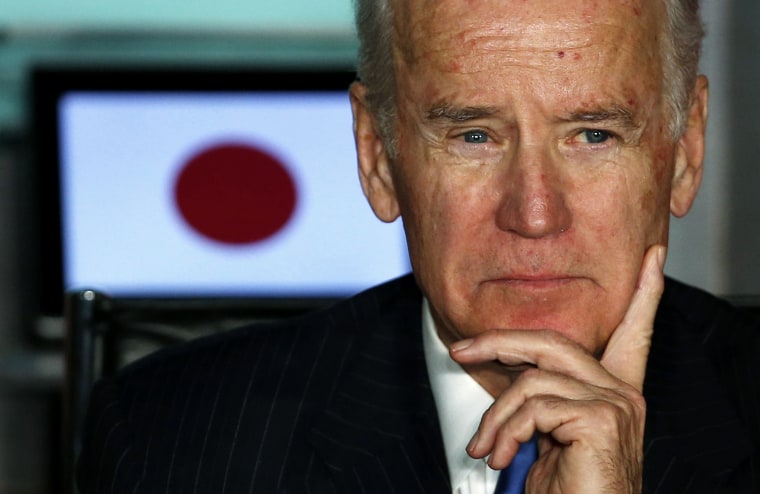With Japan and China in a standoff over the Senkaku Islands, Vice President Joe Biden has arrived in the region for a weeklong tour. After China established an air defense zone over the territory last week, Biden faces the delicate challenge of diffusing the tension between these centuries old rivals.
Biden, arriving in Japan Tuesday before heading to China and South Korea, accused China of raising regional tensions with its airspace expansion and said that the United States is “deeply concerned by the attempt to change the status quo in the East China Sea.”
Although the U.S. said it would not recognize China’s new zone and sent two unarmed B-52 bombers through the new airspace, officials are trying to tread carefully. China is a key trading power. The two countries are trying to complete negotiations for China to join the Trans-Pacific Partnership Agreement, a multilateral free trade agreement between Asia-Pacific countries. As a safety precaution, the U.S. warned civilian planes to comply with China’s demand to notify them before entering the airspace.
The Atlantic’s Steve Clemons, who is currently traveling with the vice president in Asia, said on Tuesday’s The Daily Rundown that Biden’s statement alongside Japanese Prime Minister Shinzo Abe was a bit of a letdown to the Japanese.
“There was an expectation or hope that Joe Biden would come with something that was harder,” said Clemons. People hoped “that he would draw a red line... over this air identification zone.”
On Wednesday, Biden will travel to Beijing to meet with Chinese President Xi Jinping, where he is expected to again raise U.S. concerns over the new zone. Later this week, he will visit South Korea, which also opposes China’s air-defense identification zone.
Although the territories have been the center of dispute for centuries, tensions have escalated in the last 40 years after a 1969 United Nations report suggested that there were large deposits of oil beneath the ocean floor nearby.
As U.S. diplomatic leaders juggle other international conflicts -- Secretary of State John Kerry with Iran’s nuclear program and Secretary of Defense Chuck Hagel with Egypt’s drafting of a constitution -- many experts say Biden will now likely take a greater role in promoting peaceful relations in Asia.
“There’s a lot of resentment that’s built up over thousands of years here culturally,” said Clemons. “Joe Biden is trying to bring a message in [that] their prosperity regionally is on the line if they don’t find a way to fundamentally begin working together.”
“All are looking to the United States,” said former Sen. Richard Lugar, who also appeared on Tuesday’s program. “The vice president being there is the critical point. The United States cares, the Vice President’s a great diplomat.”
